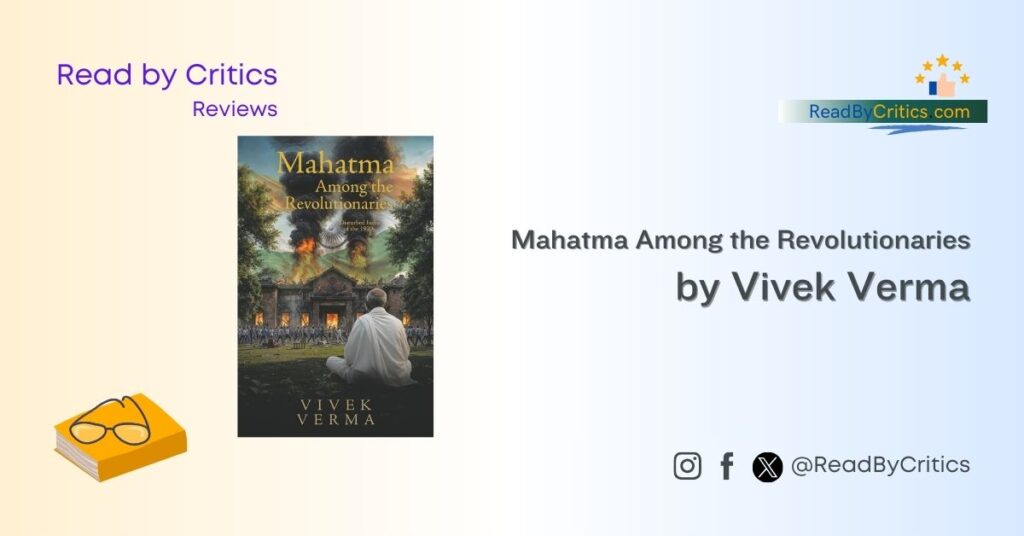S. Jaishankar is India’s external affairs minister. Recently, he wrote a book ‘Why Bharat Matters’. Readers are discussing the book and it has become a bestseller quickly after the launch. Since the author is well-versed in diplomacy and the world of ‘external’ affairs, one can expect a lot from this book. However, the title sounds more than just diplomacy and foreign affairs. It is also an introspection, a look within, an exploration into the heart of Bharat. In this article, I am attempting to cover as much as I can and present a detailed review of this book. Perhaps one of the rare occasions when a serving minister comes up with a book that is rich in literary values and serves the best political interests of the government, the party and the country as a whole… let’s dive right into it!
Synopsis:
In “Why Bharat Matters,” Indian External Affairs Minister S. Jaishankar embarks on a profound exploration of India’s foreign policy landscape, weaving together ancient Hindu epics with contemporary diplomatic challenges. The book, divided into 11 chapters, serves as a comprehensive guide to understanding India’s role in the global arena. From discussions on the Quad and China to reflections on India’s civilisational legacy, Jaishankar offers a multifaceted examination of the forces shaping India’s engagement with the world.
Expectations:
Readers can expect a rich tapestry of insights that transcend traditional approaches to diplomacy. Jaishankar combines scholarly analysis with practical wisdom, providing readers with a nuanced understanding of India’s foreign policy objectives. Through engaging prose and poignant anecdotes, the author invites readers to reevaluate prevailing paradigms and embrace India’s cultural heritage as a guiding principle in international relations.
Use of Ancient Hindu Epics:
One of the book’s most compelling aspects is Jaishankar’s adept use of ancient Hindu epics, particularly the Ramayana, to illustrate contemporary diplomatic challenges. By drawing parallels between characters like Hanuman and Sri Krishna and modern-day leaders, the author underscores the timeless relevance of Indian wisdom in navigating complex geopolitical landscapes. For instance, Jaishankar reflects on Hanuman’s unwavering commitment to duty in the face of adversity, drawing parallels to India’s quest for resilience and strategic foresight in the international arena.
Style of Writing:
Jaishankar’s writing style is both erudite and accessible, catering to a wide range of readers. Through meticulous research and eloquent prose, the author demystifies complex geopolitical concepts while imbuing the narrative with depth and authenticity. Jaishankar’s use of vivid imagery and compelling storytelling captivates the reader, making abstract ideas tangible and relatable.
Let’s get into the details. S. Jaishankar’s incorporation of examples from ancient Indian epics such as the Ramayana and the Mahabharata in his book “Why Bharat Matters” is indeed a masterstroke in making complex diplomatic concepts relatable and engaging for readers. By drawing parallels between characters, events, and themes from these timeless texts and contemporary diplomatic challenges, Jaishankar effectively bridges the gap between ancient wisdom and modern geopolitics, creating a narrative that resonates with readers on multiple levels.
One of the most compelling aspects of Jaishankar’s approach is his allusions to Hindu gods like Hanuman and Sri Krishna in the context of diplomacy and foreign policy. These divine figures, revered in Indian traditions for their wisdom, courage, and strategic acumen, serve as powerful symbols that enrich the discourse on contemporary international relations. For example, Jaishankar portrays Hanuman as an embodiment of unwavering commitment to duty and resilience in the face of adversity, qualities that are essential for navigating the complexities of modern geopolitics. Similarly, Sri Krishna’s role as a strategist and counsellor in the Mahabharata offers valuable insights into the art of statecraft and diplomacy, inspiring readers to adopt a more holistic approach to global affairs.
Moreover, Jaishankar’s comparisons between ancient Hindu history and modern world situations not only make his arguments more accessible but also underscore the timeless relevance of Indian cultural heritage in shaping India’s foreign policy outlook. By highlighting parallels between historical events and contemporary challenges, Jaishankar invites readers to reflect on the enduring values and principles that have guided India’s engagement with the world for centuries. This approach not only enriches the intellectual discourse but also fosters a deeper appreciation for India’s civilisational legacy and its role in shaping the course of history.
Furthermore, Jaishankar’s use of vivid and evocative language brings these comparisons to life, creating a rich tapestry of imagery that captures the imagination of the reader. Through compelling narratives and vivid descriptions, Jaishankar transports readers to ancient battlefields and diplomatic councils, allowing them to witness firsthand the timeless lessons embedded in these stories. This immersive storytelling not only makes the book more engaging but also reinforces the author’s arguments with tangible examples that resonate with readers on an emotional level.
To conclude this section, it is more than merely visible that S. Jaishankar’s adept use of examples from ancient Indian epics in “Why Bharat Matters” serves to make his thoughts on diplomacy, assessment of the current world order, and India’s place in it relatable, accessible, understandable, and vivid. By drawing parallels between ancient wisdom and modern geopolitics, Jaishankar creates a compelling narrative that enriches the discourse on international relations and underscores the enduring relevance of India’s cultural heritage in shaping global affairs.
India as Vishwa Mitra:
The author’s discussion of India’s response to natural calamities and humanitarian crises underscores the country’s commitment to global solidarity and cooperation. By mentioning India’s assistance to countries affected by cyclones like Yasa, Gita, Hola, and Winston, Jaishankar underscores India’s readiness to provide timely and effective support to countries facing environmental disasters. This proactive approach not only demonstrates India’s capacity to contribute to global disaster relief efforts but also reinforces its image as a reliable and compassionate ally on the world stage.
Jaishankar’s reference to India’s historical connections with countries like Fiji underscores the depth of India’s engagement with the world. By acknowledging the historical ties between India and Fiji, Jaishankar lays the groundwork for fostering modern collaborations based on shared values and mutual respect. This historical perspective serves to strengthen India’s diplomatic outreach and deepen its partnerships with countries across the globe, positioning India as a trusted friend and partner in times of crisis.
Mentioning India’s response to the COVID-19 pandemic, the author and India’s External Affairs Minister highlights India’s efforts to provide vaccines to countries like Fiji, Nauru, Papua New Guinea, and the Solomon Islands through initiatives like COVAX. By doing so, Jaishankar illustrates India’s willingness to extend a helping hand to its neighbours and partners, showcasing the country’s commitment to global health security and collective well-being. This gesture not only underscores India’s role as a responsible global actor but also reaffirms its status as a reliable friend and ally to nations in distress.
Overall Impression:
“Why Bharat Matters” emerges as a tour de force that transcends disciplinary boundaries, offering a comprehensive analysis of India’s foreign policy vision. Jaishankar’s deep understanding of history, culture, and geopolitics permeates every page, offering readers a holistic perspective on India’s place in the world. The book serves as a rallying cry for embracing India’s civilisational legacy as a source of strength and resilience in an increasingly interconnected world.
Who Should Read It:
This book is essential reading for policymakers, diplomats, scholars, and anyone seeking a deeper understanding of India’s foreign policy trajectory. It appeals to a diverse audience, from students of international relations to general readers interested in global affairs. Moreover, individuals interested in ancient wisdom, leadership principles, and strategic thinking will find “Why Bharat Matters” to be an enlightening and enriching read.
In conclusion, “Why Bharat Matters” stands as a magnum opus that illuminates India’s cultural heritage and its impact on global diplomacy. Through meticulous research and engaging storytelling, S. Jaishankar offers readers a transformative journey that celebrates India’s civilisational virtues, cultural richness, wisdom, eagerness to cooperate and its enduring relevance in shaping the course of history. He ensures that the world knows today Why Bharat Matters!
Click here to get a copy from Amazon India now.
Review by Alok M for Read By Critics
Why Bharat Matters by S Jaishankar, a book review
-
Critical Rating
Summary
Rich, relevant, rare… an enlightening book by India’s stellar performing external affairs minister S. Jaishankar!





1 Comment. Leave new
Wonderfully reviewed… I will surely get a copy ASAP. I have read the previous book by S Jaishankar and that was marvellous as well. I hope the book delivers whatever you have raised here.
Keep up this job guys. Reviews on this website are up to the mark. Thanks!